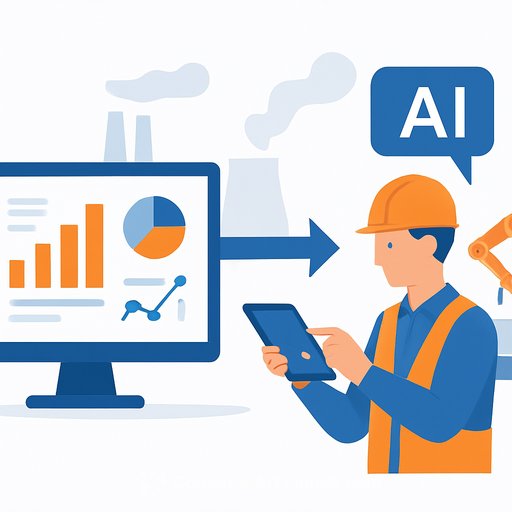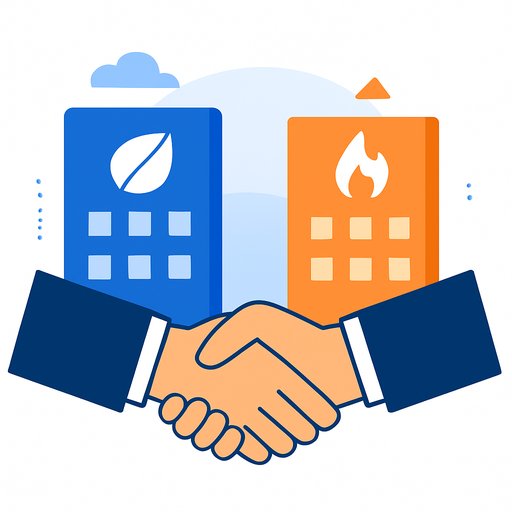Five ways to use AI in your hotel's day-to-day operations
AI has been loud. Your job is to make it useful. In operations, that means removing repetitive work, speeding up responses, and tightening workflows so the team can spend more time with guests.
The fear isn't robots replacing hospitality. The risk is falling behind hotels that run leaner, respond faster, and scale with less friction. AI helps you get there without heavy investment.
Tackling skepticism: AI and the human touch
Hospitality is human. Keep it that way. Use AI to cut admin, standardize quality, and surface insights. Let your team do what tech can't: greet, anticipate needs, and make stays memorable.
Efficient operations attract investment, withstand demand shocks, and deliver consistent service under pressure. That's the real upside.
Quick wins with large language models
You don't need new enterprise systems to see results. Start with large language models (LLMs) like ChatGPT or Claude. One focused use case can pay back in days, not months.
1) Responding to guest reviews
Review responses matter for rankings and reputation, but they drain time. Train an LLM with your tone of voice, brand positioning, house rules, and common fixes. Generate responses in seconds and let supervisors approve in batches.
- Inputs: past replies, FAQs, comp policy, escalation rules.
- Outputs: on-brand drafts with correct facts and empathy-ready to post.
2) Guest communication
Use AI to handle FAQs, booking questions, policy clarifications, and pre-stay messages. Feed it your website copy, room details, amenities, and past threads so replies stay consistent.
- Set up a standard "voice guide" prompt for tone, response time, and format.
- Track response time, deflection rate, and guest satisfaction to prove impact.
3) Translation
Most properties publish content in a few languages while hosting guests from many more. Translate room descriptions, policies, and booking engine text into 30+ languages with an LLM so it reads naturally, not like a literal translation.
- Store prompts and outputs in your CMS for quick updates.
- Spot-check high-visibility pages with a native speaker before publishing.
4) Staff scheduling
Rotas are messy-occupancy swings, time-off requests, labor budgets, and compliance rules. Give an LLM your occupancy forecast, shift rules, skills coverage, and constraints. Ask it for a first-pass schedule and "what-if" scenarios.
- Inputs: forecast, labor targets, union/legislative rules, cross-training matrix.
- Outputs: draft schedules, coverage gaps, and shift-change suggestions.
5) Onboarding new staff
Turn long SOPs into short training paths: quizzes, checklists, and role-play prompts. New hires ramp faster and managers get visibility into who knows what.
- Create scenario-based practice for check-in, overbooking, complaints, and upsells.
- Refresh materials instantly when policies change-no reformatting marathon.
Improve the guest experience
Concierge work is shifting from reactive to proactive. Use AI to build personalized city guides before arrival based on stay dates, preferences, and purpose of trip. Send them as part of the pre-stay flow.
- Examples: weekend nightlife for a young couple; cultural spots and afternoon tea for a golden anniversary.
- Outcome: helpful, timely recommendations at scale-without losing the personal touch on property.
Where to start
- Pick one workflow: review replies, guest FAQs, or translations.
- Collect your source material: FAQs, SOPs, past emails, tone guide.
- Build a reusable prompt with clear rules and examples.
- Pilot with a small team, measure time saved and guest impact, then standardize.
Tip: whenever you see a repetitive task, export the data and ask the model how it would streamline the process. Iterate. Keep a simple "AI playbook" so the team follows the same approach.
Guardrails that keep quality high
- Human in the loop: approve AI outputs for public-facing content.
- Data care: remove PII before sharing. Don't paste card data, IDs, or sensitive logs.
- Facts first: feed the model your official policies to prevent guessing.
- Metrics: track response time, labor hours saved, CSAT/NPS, review scores, upsell rate.
If your team needs structured upskilling, explore focused programs here: AI courses by job.
Hospitality, reimagined with AI
AI won't greet guests, pour drinks, or share local stories. It will clear the noise-admin, formatting, scheduling-so your team can do their best work. Less busywork, faster service, better stays.
The hotels that win won't replace people. They'll equip them. Treat AI as a silent partner in operations and use it to make every shift smoother and every guest interaction count.
Watch the episode
For more practical tips and ideas for using AI in your hotel's day-to-day, watch the full episode of Matt Talks.
About Mews
Mews is the leading platform for the new era of hospitality. Powering over 12,500 customers across more than 85 countries, Mews Hospitality Cloud is built to streamline operations for modern hoteliers, improve the guest experience and create more profitable businesses. Customers include BWH Hotels, Strawberry, The Social Hub and Airelles Collection. Mews was named Best PMS (2024, 2025) and listed among the Best Places to Work in Hotel Tech (2021, 2022, 2024, 2025) by Hotel Tech Report. Mews has raised $410 million from investors including Growth Equity at Goldman Sachs Alternatives, Kinnevik and Tiger Global to transform hospitality. www.mews.com
Your membership also unlocks:






